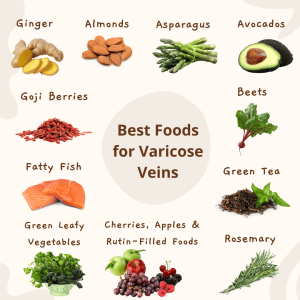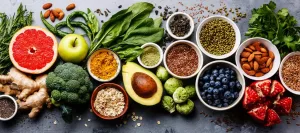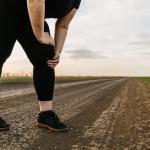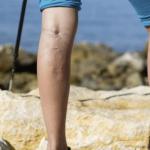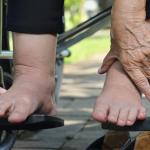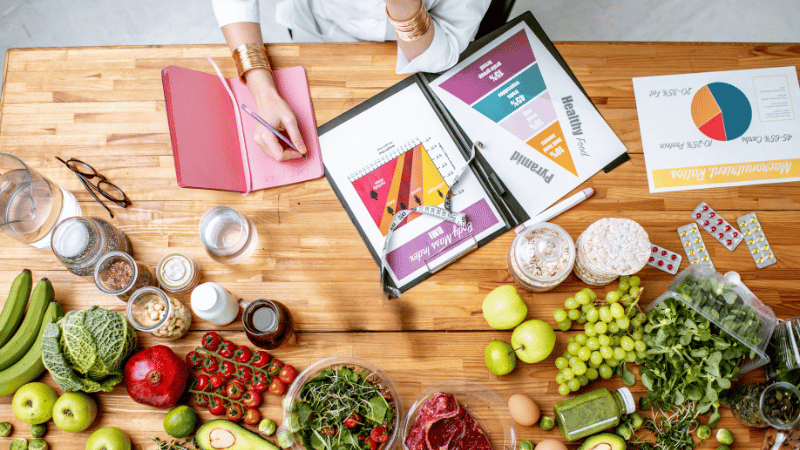
What you eat impacts your vein health, including the development of varicose veins.
Certain foods contain nutrients that strengthen vein walls, reduce inflammation, and support blood circulation. These foods can help prevent varicose veins and improve outcomes after varicose vein treatment.
Many of the best foods for managing varicose veins are likely already familiar ingredients in your kitchen. So, incorporating these choices into your diet can be a simple and effective way to support your well-being.
Take Our Vein Health Symptom Quiz
How Diet Impacts Varicose Veins
Eating a diet rich in the nutrients that support vascular health can impact the strength and flexibility of your veins, prevent damage to the valves and walls, and support overall vein health.
Let’s take a look at the foundational elements of good nutrition for varicose veins and how each impacts your veins.
Antioxidants
While research on the specific impact of antioxidants on vein health is still ongoing, they are believed to offer some potential benefits. Antioxidants prevent cellular damage and reduce inflammation of your veins This could relieve symptoms like pain and swelling. Antioxidants are thought to improve blood flow by relaxing blood vessel walls and preventing the formation of blood clots.
There are dozens of helpful antioxidants in fresh fruits and vegetables, nuts and seeds, and whole grains. However, one of the most important antioxidants for vein health is rutin, a bioflavonoid that is known to aid in circulation by strengthening blood vessel walls and increasing flexibility.
Vitamins C and E also act as antioxidants in the body, helping to protect your veins and support healthy vascular function.
Vitamin C
This vitamin also supports the production of collagen and elastin, two proteins that are needed for stronger veins.
Vitamin K
This nutrient strengthens capillaries’ walls, which helps prevent stretching and breaking. It’s also important for helping the blood clot when you have a bruise or a cut, making it important for good circulation.
Vitamin D
Vitamin D helps blood vessels relax, making them more supple and preventing stiffness.
Fiber
Getting plenty of fiber in your diet prevents constipation, which can put pressure on your veins. Fiber also keeps cholesterol levels low and helps your body maintain healthy blood pressure levels.
Hydration
Drinking plenty of water leads to easier blood flow by thinning the blood. It’s known that dehydration can impair vascular function and blood pressure regulation, so it’s important to make good hydration a part of your varicose vein diet plan.
Sign Up for Our Newsletter & Maintain Healthy Veins
11 Foods for Varicose Veins
The best foods for varicose veins contain antioxidants, vitamins for healthy veins, fiber, and other key nutrients supporting the vascular system.
1. Avocados
Avocados are one of the best fruits for varicose veins. They’re loaded with vitamins C and E, which are known to be great for vein health. Glutathione is also present in avocados, and this is known to protect your arteries and your veins.
2. Beets
Not only are beets a nice colorful addition to your plate, but they are also a great addition to your diet for vein health. This vegetable is filled with a phytochemical compound that helps lower the levels of a naturally occurring amino acid in your body that can sometimes attack blood vessels.
3. Asparagus
Steam it, throw it on a salad, add it to your steak — what ever way you choose to eat your asparagus, know it’s helping your veins. Asparagus is high in vitamins C, E, and K. It also contains fiber.
4. Rosemary
Known to get the circulation moving again, rosemary is a great herb to add to your diet to help your veins work properly. In addition, it contains an antioxidant compound called rosmarinic acid that helps protect your tissues from free radicals.
Rosemary is excellent in soups. You can also use it to flavor roasted meats and fish.
5. Ginger
Ginger helps to reduce inflammation, which can help to protect your veins from damage. It’s also known to dissolve a substance called fibrin, which can pool in your blood vessels.
6. Cherries, Apples, Buckwheat, and Other Rutin-Filled Foods
Rutin is the antioxidant that is particularly beneficial for vein health, so you’ll want to ensure your diet contains plenty of rutin-rich foods. Some of the best sources are:
- Apples
- Blackberries
- Cherries
- Blueberries
- Buckwheat
- Grapes
- Capers
- Black olives
- Raspberries
7. Goji Berries
These berries are an excellent source of antioxidants, including flavonoids and carotenoids, that help to strengthen small capillaries and vein walls. You can snack on dried goji berries to help prevent varicose veins and spider veins.
8. Fatty Fish
Fish like mackerel, tuna, and salmon, are some of the best to eat for supporting good circulation and protecting your veins from damage. They supply the body with vitamin D and omega-3 fatty acids, which help improve blood pressure and reduce plaque build-up in your arteries.
9. Green Tea
Green tea contains antioxidants called catechins that have known vascular protective effects. Its antioxidants also help to reduce vein inflammation, which is a major cause of vein damage and the development of vein disease.
10. Almonds
Almonds are an excellent source of vitamin E, which prevents damage to cells in vein walls. It’s also a good source of fiber. And, even better, almonds pair wonderfully with dried goji berries and cherries for a tasty, vein-healthy snack.
11. Green Leafy Vegetables
Dark leafy greens, including spinach, broccoli, cabbage, and kale, are excellent foods for varicose veins. These vegetables contain vitamins C and K. They’re also a good source of antioxidants and fiber to help protect your veins from damage.
Diet for Varicose Veins: What to Eat and Why
While diet alone cannot cure varicose veins, making informed choices about what you eat can significantly support your vein health and improve certain symptoms. Choosing foods rich in antioxidants and other beneficial nutrients can help by:
- Keeping your veins strong and supple
- Improving blood circulation
- Reducing inflammation and preventing damage
The only way to eliminate spider veins and varicose veins is by treating the underlying cause — venous insufficiency or vein disease.
In addition to vein treatment, eating a diet rich in foods that support vascular health can help to prevent further issues from developing.
At USA Vein Clinics, we specialize in treating venous insufficiency. Our doctors can treat your varicose and spider veins with outpatient procedures that can improve your symptoms and quality of life.. We also provide personalized aftercare recommendations, including lifestyle habits and diet tips to help you enjoy better vein health for years to come. Our goal is to empower you to make informed choices about your health.
Medically Reviewed By:
Dr. Yan Katsnelson is a philanthropist, business owner, and highly skilled cardiac surgeon. He is the Founder and CEO of USA Vein Clinics, which is part of USA Clinics Group, the parent company of USA Fibroid Centers, USA Vascular Centers, and USA Oncology Centers, with more than 100 facilities nationwide. Dr. Yan has established himself as a strong advocate for accessibility and affordability of the most advanced medical care close to home. His mission is to create a positive experience for each patient with compassionate, personalized, and expert care.
Sources:
Bielli, Alessandra et al. “Antioxidants and vascular health.” Life sciences vol. 143 (2015): 209-16. doi:10.1016/j.lfs.2015.11.012
Keske, Michelle A et al. “Vascular and metabolic actions of the green tea polyphenol epigallocatechin gallate.” Current medicinal chemistry vol. 22,1 (2015): 59-69. doi:10.2174/0929867321666141012174553

